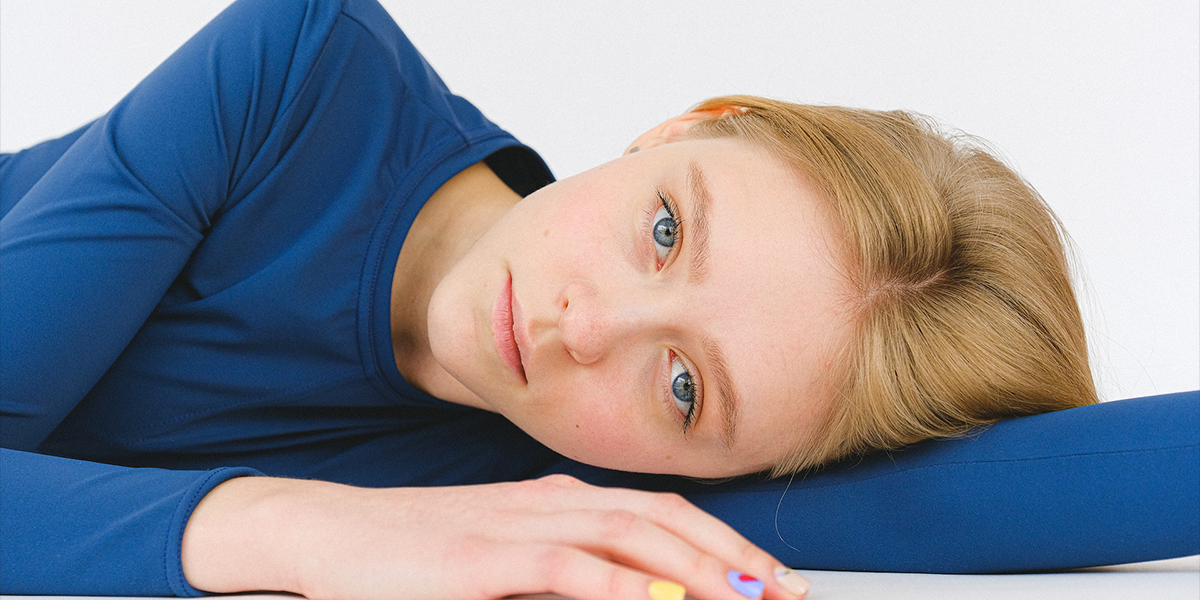Body image issues have impacted people of all ages, genders and cultures since the dawn of time (probably).
Or at least since the dawn of the mirror. And especially since the advent of Instagram which has an endless supply of genetically blessed people flaunting their bodies.
And body image problems for Gen Zs increased even more during pandemic lockdowns when young people had a lot of time to stare at themselves in the mirror.
When we surveyed over 1000 young Australians aged 15 to 24 for our Big Youth survey in December, more than half (51%) told us they don’t have a positive body image. It means that of Gen Zs today, half are happy with the way they look and half aren’t.
Breaking the data down by gender we found 58% of females say they don’t have a positive body image compared to 43% of males.
This follows 2019 research from the Butterfly Foundation – an NGO that provides support to Australians suffering from eating disorders and body image – which found that one in four young Aussies have ‘serious body image concerns’.
These stats can shed light on why so many young Australians, especially females, are interested in going under the knife or getting injections.
For example, 14% of females told us they’d like to have plastic surgery, compared to 6% of males.
One in ten females (10%) admitted they’re interested in getting facial fillers, which are substances that are injected into the skin to smooth wrinkles and make them less noticeable, compared to 1% of males.
Meanwhile, 6% of females said they’d like to get botox, compared to 1% of males.
To put this into context, cosmetic surgery procedures in Australia have skyrocketed over the past two decades, with more than half a million procedures performed in 2021 alone.
That puts Australia ahead of the United States in most cosmetic procedures per capita.
Shocked? Us too.
But Melbourne dermatologist Dr Cara McDonald, who’s been working with injectables for 15 years recently told The Guardian that there’s a ‘growing cohort’ of younger Australians considering it a “normal part of self-care”.
“The younger generations really see it as something that there’s no shame associated with it; there’s no stigma,” she said.
So what’s behind Gen Z’s body image problem?
A 16-year-old female from Victoria told us how the biggest challenge to her body image is due to comments she receives at school.
“I struggle with negative thoughts towards my body and constantly comparing myself to other people I know or who I see on social media,” she said.
“I sometimes worry that the reason my friends are excluding me is that I’m not as pretty as all of them.”
A 17-year-old female from rural NSW said while they haven’t experienced bullying or harassment, they’ve experienced “demoralising comments” about their body that, over time, have been a challenge in maintaining a positive body image.
“Grow your hair out. Try some chin creams. You look anaemic. Don’t touch your eyebrows. Go look in the mirror. Try the pill it will help. Are you pregnant?” she said.
“Despite these ever-building remarks, I try to maintain a positive body image. Other people’s beauty standards are not my problem.”
(Yassss queen!)
So where to from here?
Butterfly Foundation CEO Christine Morgan says it’s time we addressed bullying, shifted stigmas and changed the national conversation about beauty standards.
“How we talk about our own and others’ appearance can seriously impact body confidence,” Morgan said.
“(But) this is not just about being kinder to ourselves and others. There are serious health ramifications if we do not challenge fundamental belief structures that are translating into nationwide body shape and size stigma.
“When poor body self-esteem impacts on an individual’s self-worth and value system it can cripple their ability to fully participate in life. Shifting national conversation about body image is a huge undertaking that requires investment in stigma reduction and health promotion but, if we acknowledge the complexity of the problem and each play our part as individuals, it is more than achievable.”
Challenge accepted, Australia?






